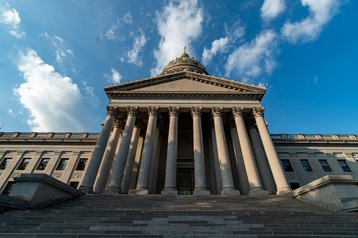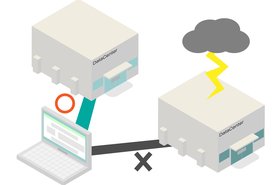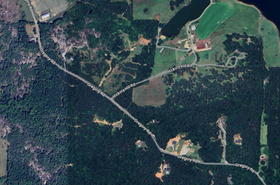The West Virginia House of Representatives has approved an amended bill proposed by Governor Patrick Morrisey to incentivize the construction of microgrids for data centers in the state.
The bill, House Bill 2014, passed with 88 voting in favor and 12 against. Following its passing in the House, the bill will now move to the Senate for introduction and consideration.
The bill, first reported by West Virginia Watch, has been dubbed as the Power Generation and Consumption Act and will permit companies who seek to build data centers the ability to build their own independent microgrids to power their operations.
The program, if passed, would operate through the newly reorganized Division of Economic Development.
Data centers seeking to take advantage of the new act would create their own microgrid, to power their operations. In turn, they would be permitted to sell ten percent of the electricity generated by the microgrids on the wholesale market.
The bill will also establish a “High Impact Data Center Program” within the Division, to encourage their development and expansion. Under the program, a “High Impact Data Center” is defined as an installation or group with a critical IT load of 50MW or higher. If it passes, it will be placed into service beginning or after July 1, 2025.
Commenting on the bill, Governor Morrisey said: “Right now, we have a lot of data centers that have been knocking on our doors, and they’re anxious to come to West Virginia and start using our natural resources as a main source of power.
“Under our proposal, we are going to make it easier for these data centers to do that. West Virginia will be the most attractive state in the country for data centers after this bill is passed.”
The original bill was proposed in 2022 and included provisions that required electric utilities that operate coal-fired power plants to operate at 69 percent capacity and hold a 45-day supply of coal at all times. However, following pushback from power companies including Appalachian Power, which argued it would be hard to meet those standards without raising rates for existing customers, the provision was scrapped.
In addition, the new bill removed the provision that the power generated from the microgrid should be derived from renewable energy sources.
Speaking about the changes in the provisions, Morrisey said: “It…allows these new microgrids to burn coal, gas, and all types of energy resources rather than just being limited to certain renewables.”
The Bill follows a partnership between Diversified Energy, a natural gas provider, FuelCell Energy, a fuel cell developer, and TESIAC, an investment firm to power off-grid data centers with natural gas and methane from coal mines in West Virginia.







